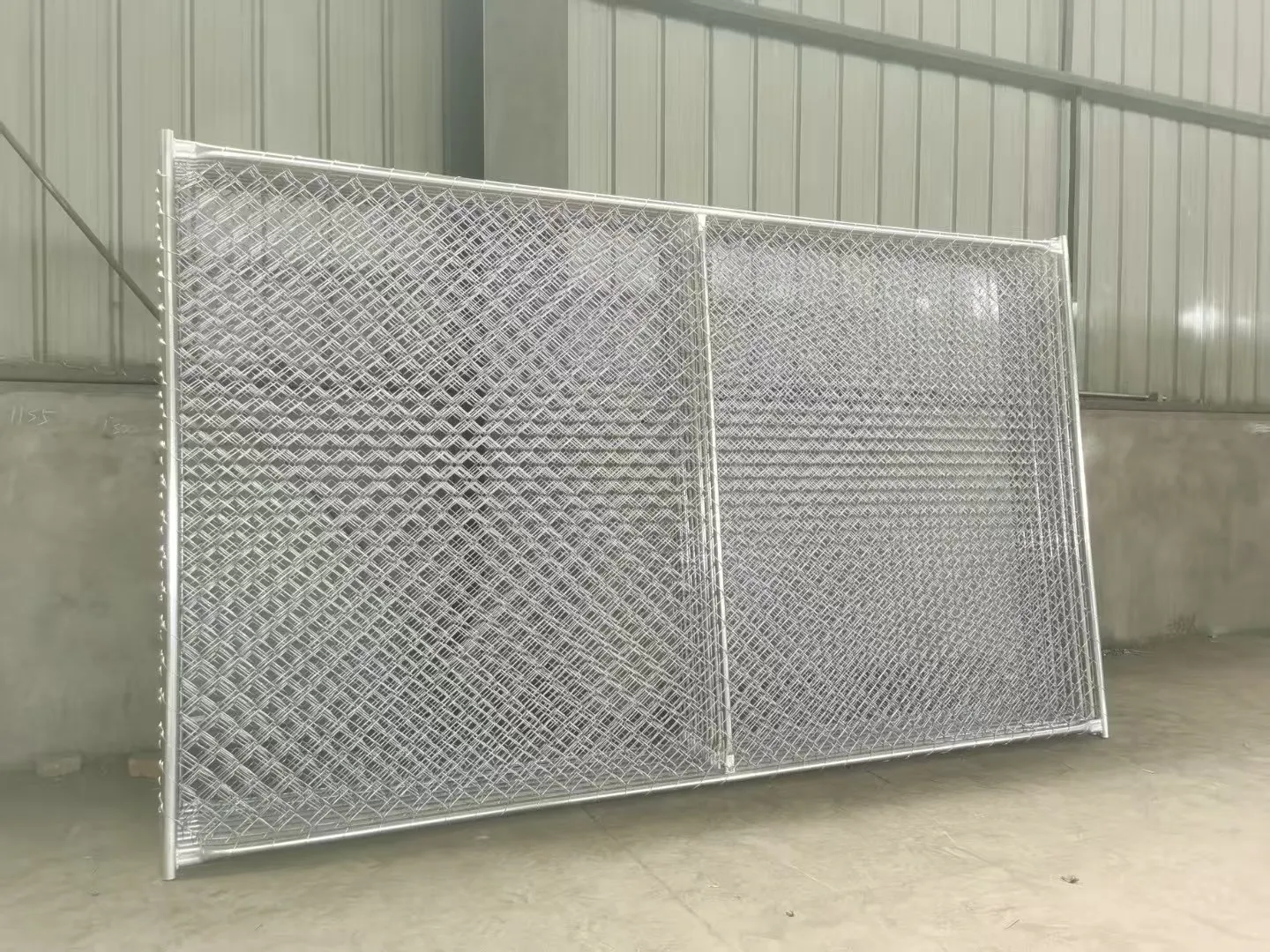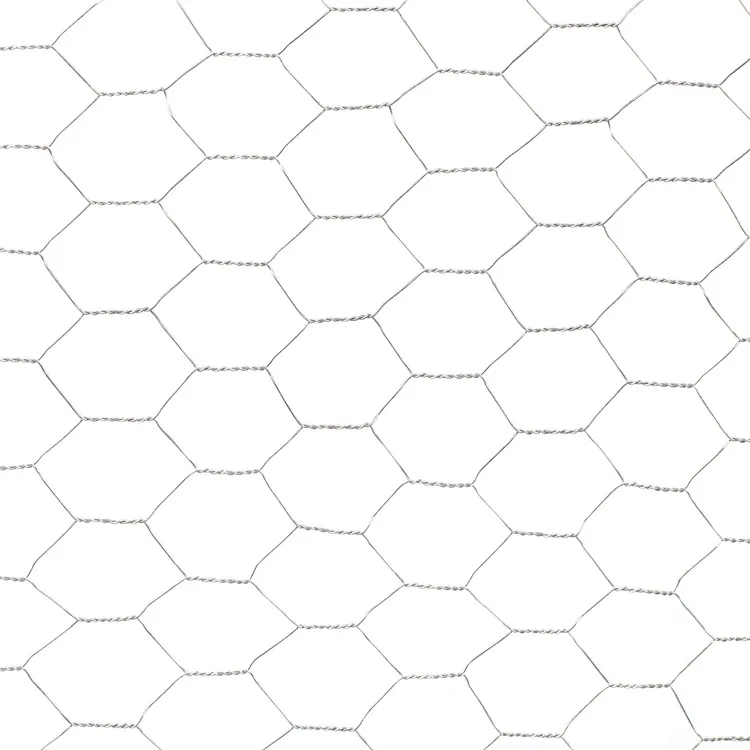High-Quality Chicken Fencing Wire Cheap Galvanized & 8 Foot Options for Best Results
- Introduction and Overview of Chicken Fencing Wire
- Key Technical Advantages of Modern Chicken Wire Fencing
- Market Comparison: Vendors and Cost-Effectiveness
- Custom Solutions: Adapting Chicken Wire Fencing to Diverse Needs
- Real-World Applications and Case Studies
- Maintenance, Longevity, and Optimization Recommendations
- Conclusion: Selecting the Best Chicken Fencing Wire for Your Needs

(chicken fencing wire)
Introduction and Overview of Chicken Fencing Wire
Chicken fencing wire is an essential material for safeguarding poultry, crops, and property boundaries. In farming and backyard settings alike, the demand for effective, long-lasting, and economic fencing solutions has grown steadily. With more than 21 million backyard chickens reported in the United States alone (USDA, 2022), choosing the right fencing material has critical implications for animal welfare and operational efficiency. Cheap galvanized chicken wire fencing and various innovative solutions now compete for farmers' attention, but not all are created equal. This comprehensive guide investigates industry options, technical advancements, leading suppliers, and real-life implementations to facilitate an informed selection process for everyone from hobbyists to commercial operators.
Key Technical Advantages of Modern Chicken Wire Fencing
The evolution of chicken fencing wire
reflects a move towards greater strength, durability, and cost-effectiveness. Galvanized steel, PVC-coated mesh, and advanced weaving patterns have redefined industry standards.
Technical Highlights:
- Galvanization: Applying a zinc coating to the wire increases corrosion resistance by up to 400% compared to untreated wire, enabling up to 20 years of outdoor use (Wire Association International, 2023).
- Wire Gauge: Modern options range from 17-gauge (thicker, stronger) to 22-gauge (lighter), with most poultry keepers preferring 19-gauge for balanced strength and flexibility.
- Mesh Size: Standard mesh apertures include 1", 1.5", and 2", with 1" mesh blocking even juvenile birds and predators.
- Height Options: High fencing, like the best 8 foot tall chicken wire fencing, offers formidable protection against jumping predators such as foxes and raccoons.
- Coating and UV Resistance: Polyvinyl chloride (PVC) and powder-coating improve weatherproofing, UV resistance, and ease of cleaning.
Market Comparison: Vendors and Cost-Effectiveness
The diversity of options in today's market is matched by a range of price points and performance characteristics. By comparing major suppliers, buyers can identify the product best matched to their budget and protection requirements.
Vendor Comparison Table:
| Brand / Vendor | Wire Gauge | Height Options | Galvanized? | Coating | Avg. Lifespan (years) | Price (100ft x 6ft) | Customer Rating (out of 5) |
|---|---|---|---|---|---|---|---|
| YARDGARD | 20 | 2', 3', 4', 5', 6', 8' | Yes | No | 10 - 12 | $58.99 | 4.3 |
| Fencer Wire | 19 | 2', 4', 6', 8' | Yes | PVC | 15 - 20 | $75.49 | 4.7 |
| Amagabeli | 18 | 3', 4', 6', 8' | Yes | Powder Coat | 12 - 15 | $110.99 | 4.5 |
| Origin Point | 20 | 3', 4', 6' | Yes | No | 10 | $52.99 | 4.2 |
| Red Brand | 17 | 4', 6', 8' | Yes | PVC | 20 | $134.99 | 4.6 |
As the table shows, price correlates with coating quality and wire thickness. Buyers seeking the best chicken wire fencing often balance initial outlay with lifespan and technical features.
Custom Solutions: Adapting Chicken Wire Fencing to Diverse Needs
While standard rolls satisfy the requirements of many, modern agricultural realities frequently demand adaptation. Customization ensures fencing suits the exact specifications of the site and intended livestock.
- Height & Gauge Adaptation: Urban gardens may prioritize visibility and aesthetics, selecting lighter-gauge wire (20/22) in 3’ heights, while commercial farms favor best 8 foot tall chicken wire fencing in lower gauges for predator defense.
- Mesh Sizing: Keeping out snakes or small rodents may require tighter mesh (1“), while standard poultry keeping does well with 1.5” or 2”.
- Color & Finishing: Black or green PVC coatings blend with landscapes, reducing visual impact, while powder-coated finishes enhance both resilience and appearance.
- Integrated Solutions: Incorporating welded corners, reinforced edges, or buried skirts to deter burrowing, is increasingly popular for those requiring elevated security.
- Easy Installation Kits: Some vendors now offer all-in-one kits including posts, ties, and gates, saving significant time for DIY poultry keepers.
Real-World Applications and Case Studies
The proven value of high-quality chicken fencing wire emerges when examined in practical deployments across different sectors.
Case Study 1: Commercial Poultry Producer in Georgia
Switching from non-galvanized wire (8-year lifespan) to 19-gauge PVC-coated galvanized wire (20-year lifespan) reduced annual replacement costs by 68% over a ten-year period.
Case Study 2: Urban Community Garden in Seattle
Employing 6’ powder-coated green wire with 1” mesh deterred both chickens from escaping and rats from entering, with zero breaches reported in three years. The site also achieved local zoning compliance thanks to the discrete, visually-appealing fencing.
Case Study 3: Small Holder Farm in Iowa
Custom-installed, buried skirt fencing (8” below ground) with 8-foot height eliminated predator losses entirely after previously losing 15% of flock per season. ROI was achieved in under two years due to reduced mortality and repairs.
Maintenance, Longevity, and Optimization Recommendations
Although chicken fencing wire is engineered for durability, proactive maintenance can maximize its lifespan and protective value.
- Routine Inspections: Monthly checks for breaks, bends, or corrosion are essential, especially after seasonal weather extremes.
- Cleaning: Washing with soap and water twice yearly prevents buildup of debris, feces, and chemical residues that accelerate corrosion, particularly on uncoated or lightly coated mesh.
- Repair Tactics: Small breaches should be patched with matching gauge wire; for larger damage, replacing affected panels is advisable.
- Vegetation Management: Keep fencing clear of vines and thick grasses to avoid hidden damage and enhance airflow, which discourages rust development.
- Optimal Installation: For the best chicken wire fencing performance, tension the wire between sturdy posts (preferably metal T-posts spaced at 8’, with reinforced corners), and anchor the base with ground stakes or buried skirting to deter digging threats.
Conclusion: Selecting the Best Chicken Fencing Wire for Your Needs
Selecting premium chicken fencing wire is crucial for securing livestock, optimizing labor, and maintaining cost controls. Whether opting for cheap galvanized chicken wire fencing for short-term applications or investing in the best 8 foot tall chicken wire fencing to achieve high-security standards, trust in verified vendors, precise specifications, and regular maintenance is essential.
By comparing core data, vendor offerings, and application outcomes, farmers and property owners can match products to their unique circumstances and goals. The right choice delivers long-term peace of mind, operational savings, and highly effective protection for poultry and agricultural investments.

(chicken fencing wire)
FAQS on chicken fencing wire
Q: What is chicken fencing wire?
A: Chicken fencing wire is a mesh-like wire used to create enclosures for poultry. It prevents chickens from escaping and keeps predators out. Available in various sizes and materials, it’s essential for backyard chicken coops.Q: Where can I find cheap galvanized chicken wire fencing?
A: Cheap galvanized chicken wire fencing is available at most hardware stores and online marketplaces. Look for bulk deals or off-season discounts. Galvanized wire resists rust, offering affordable durability.Q: What makes the best chicken wire fencing?
A: The best chicken wire fencing is sturdy, rust-proof, and has small mesh gaps. Galvanized materials and a height of 4 to 6 feet are recommended. It should balance protection, longevity, and affordability.Q: Why choose an 8 foot tall chicken wire fence?
A: An 8 foot tall chicken wire fence prevents chickens from flying out and deters large predators. It’s ideal for free-range or high-flying breeds. Taller fencing adds extra security for your flock.Q: How do I install chicken wire fencing for chickens?
A: To install chicken wire fencing, secure the wire to sturdy posts every few feet. Bury the bottom edge several inches underground to prevent digging. Finish by ensuring the fence is taut and properly fastened.-
Types and Uses of Common Nails in Construction
NewsJul.31,2025
-
The Transformative Role of Square Wire Mesh in Contemporary Architecture
NewsJul.31,2025
-
The Essential Role of Razor Wire in Modern Perimeter Security
NewsJul.31,2025
-
Installation Guide for Hexagonal Wire Netting Fencing
NewsJul.31,2025
-
How to Properly Use Rebar Wire Ties for Stronger Concrete Structures
NewsJul.31,2025
-
Creative and Decorative Uses of Barbed Wire in Design
NewsJul.31,2025














